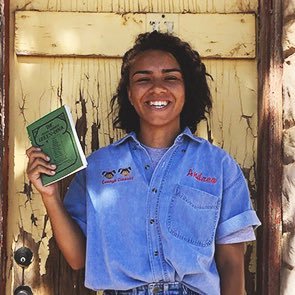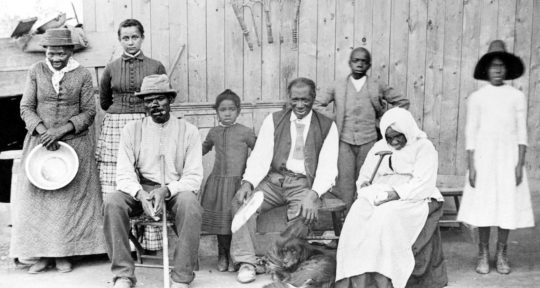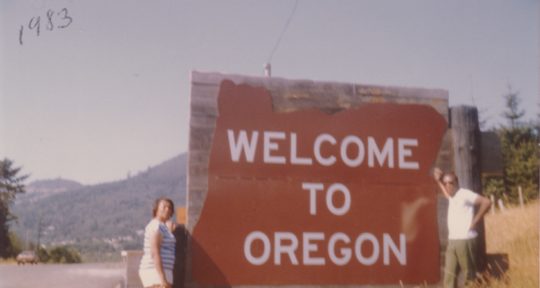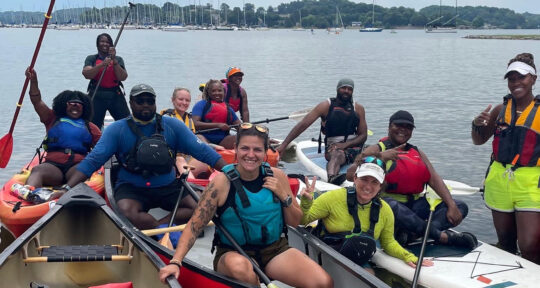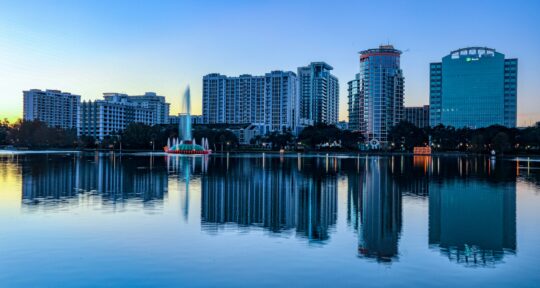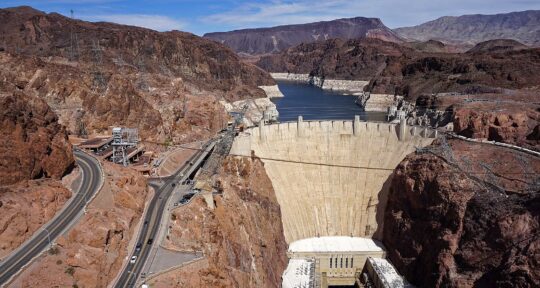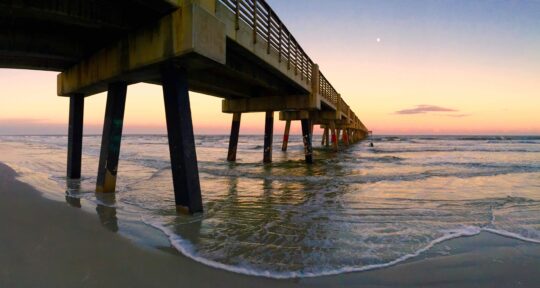When Dr. Scott V. Edwards was planning out his summer at the beginning of 2020, he assumed he’d spend several months working on academic projects and engaging with other scholars at Harvard University in Cambridge, Massachusetts, where he teaches Organismic and Evolutionary Biology. But then the COVID-19 pandemic cancelled his summer plans.
Instead, between June 6 and August 20, Edwards rode a bicycle 3,848 miles across the continental United States—from Massachusetts to Oregon—stopping in small towns and bird watching along the way. The trip was the fruition of a lifelong dream, but in the midst of a virus-plagued and politically fraught summer, it didn’t go exactly as he had always imagined.
“I went from looking forward to a normal summer to basically starting on the trip in about two and a half months,” Edwards says. “I bought a new bike in early April, and that’s really when the planning started in earnest.”
Edwards originally intended to embark on the trip in late May, after his spring classes ended. But then his plans shifted again.
On May 25, a Minneapolis police officer killed George Floyd by kneeling on his neck for 8 minutes and 42 seconds. On the same day, a video of a racist interaction between a white woman and a Black birder named Christian Cooper in New York City’s Central Park went viral on social media. In the days that followed, people across the nation took to the streets, marching and protesting in support of the Black Lives Matter movement and in opposition to police brutality and ongoing racial injustices.
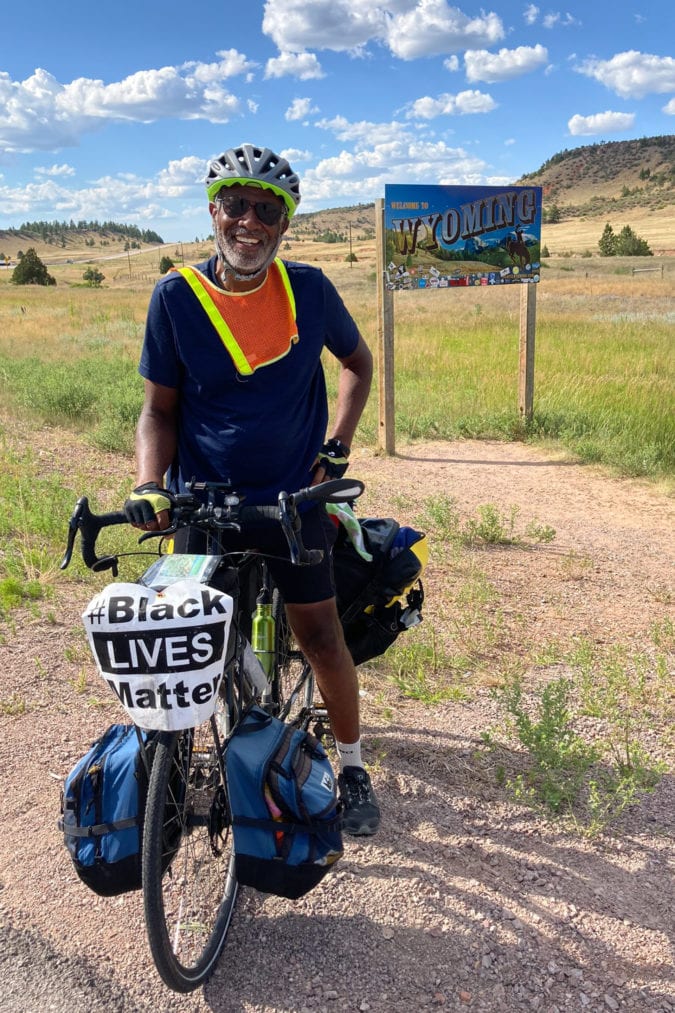
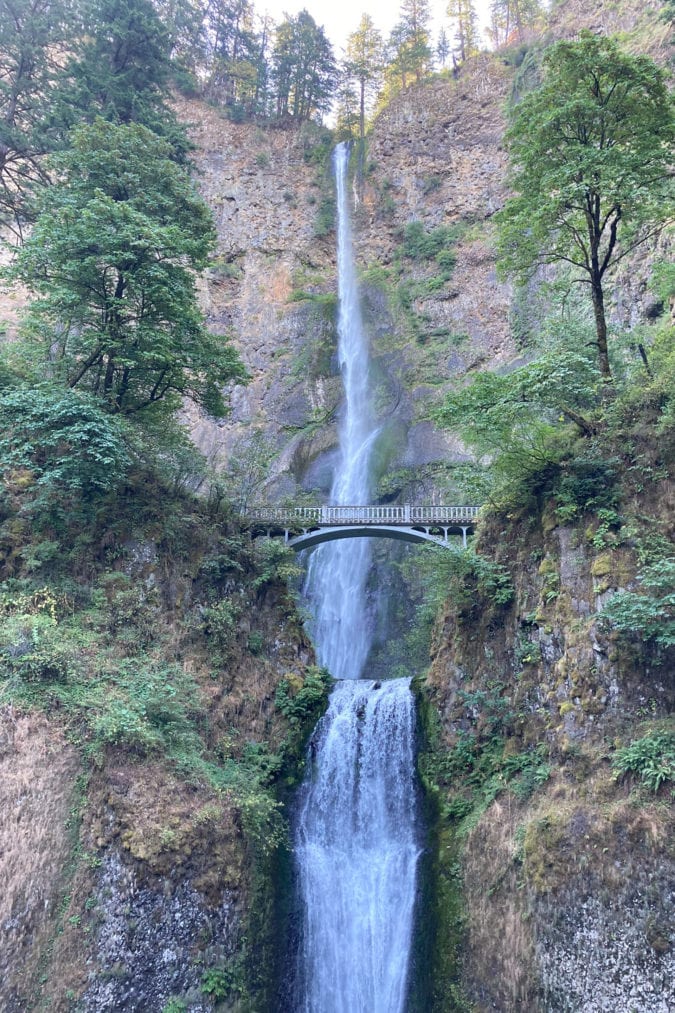
In these few weeks, Edwards’ trip began to take on a new political dimension. As a Black man working in the field of ornithology, Edwards says the Floyd and Cooper incidents hit particularly close to home. That week, he created a Twitter account in order to participate in Black Birders Week, Black Botanists Week, and conversations using the hashtag #BlackInNature. Just a few days into his trip, he also affixed two Black Lives Matter signs to the front and back of his bike, visible to anyone driving past him in either direction.
An adaptive adventure
Edwards was first introduced to bike touring in college, when he worked for a company called Student Hosteling Program (SHP). He led several two-week bike trips throughout New England, and later did a tour in Europe. Since then, it has always been a dream of his to bike across the U.S.
Edwards says his preparations for a trip on this scale were not much different than it would have been if COVID-19 was not a factor; only this time, he packed plenty of masks and hand sanitizer.
But, once he hit the road, Edwards ran into some unexpected travel hurdles. In the early parts of his trip, from Massachusetts through Upstate New York, Edwards found that several campgrounds were still closed to tent campers, who would have to use shared lavatories.
-
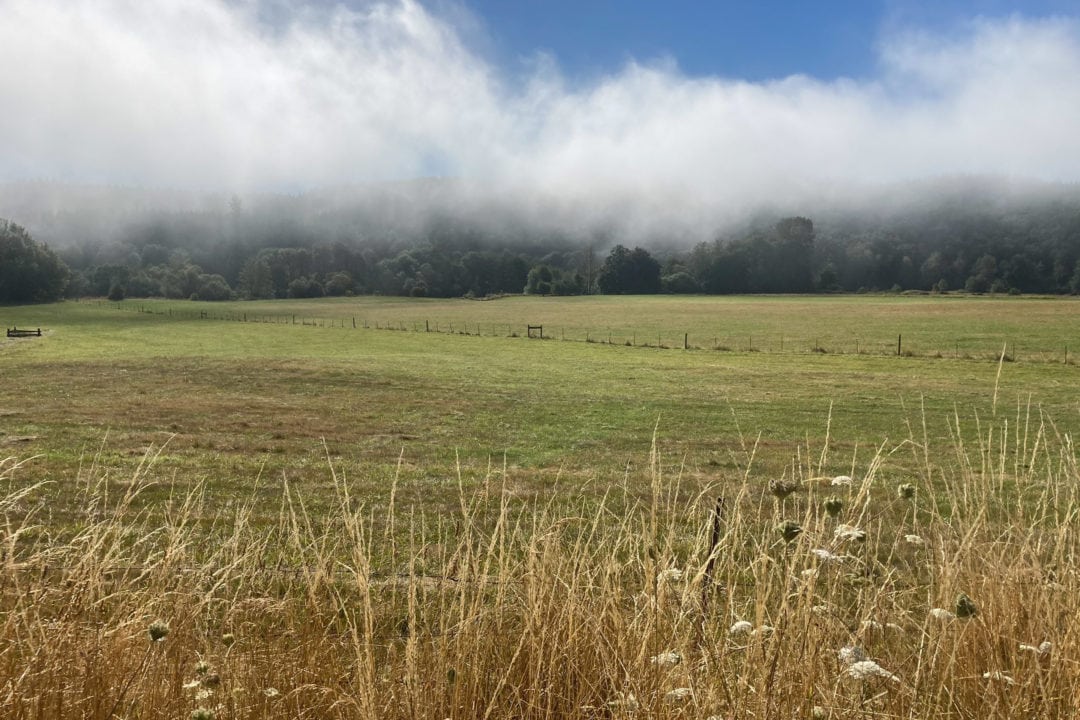
Fog in Oregon. | Photo: Scott V. Edwards -
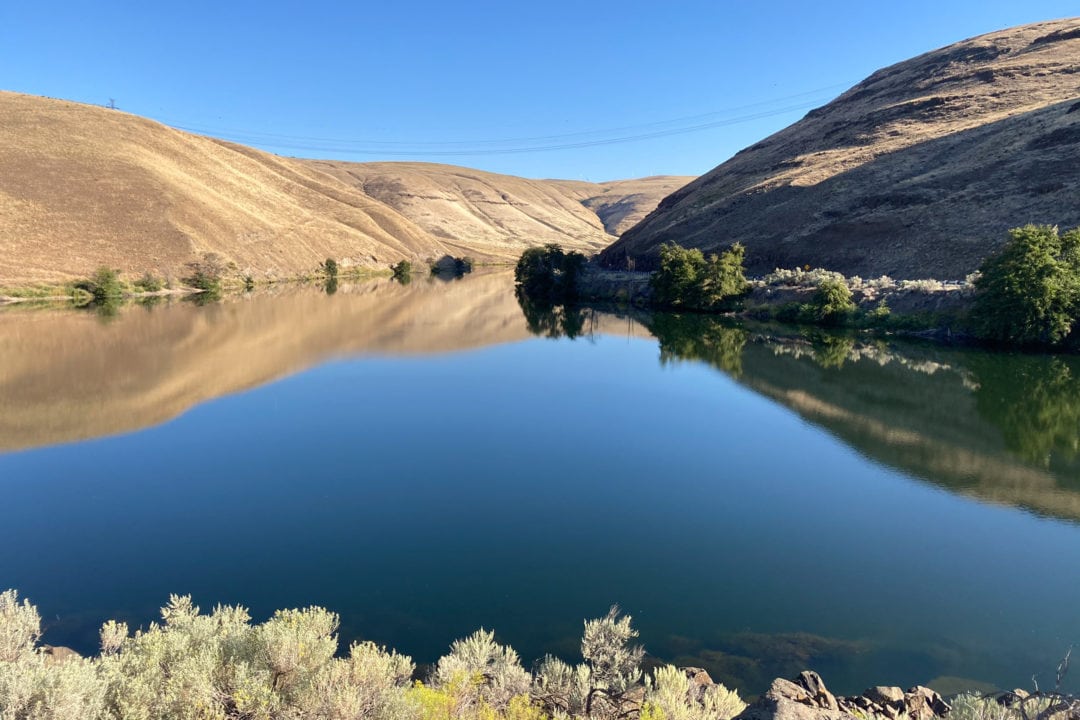
The Columbia River. | Photo: Scott V. Edwards -
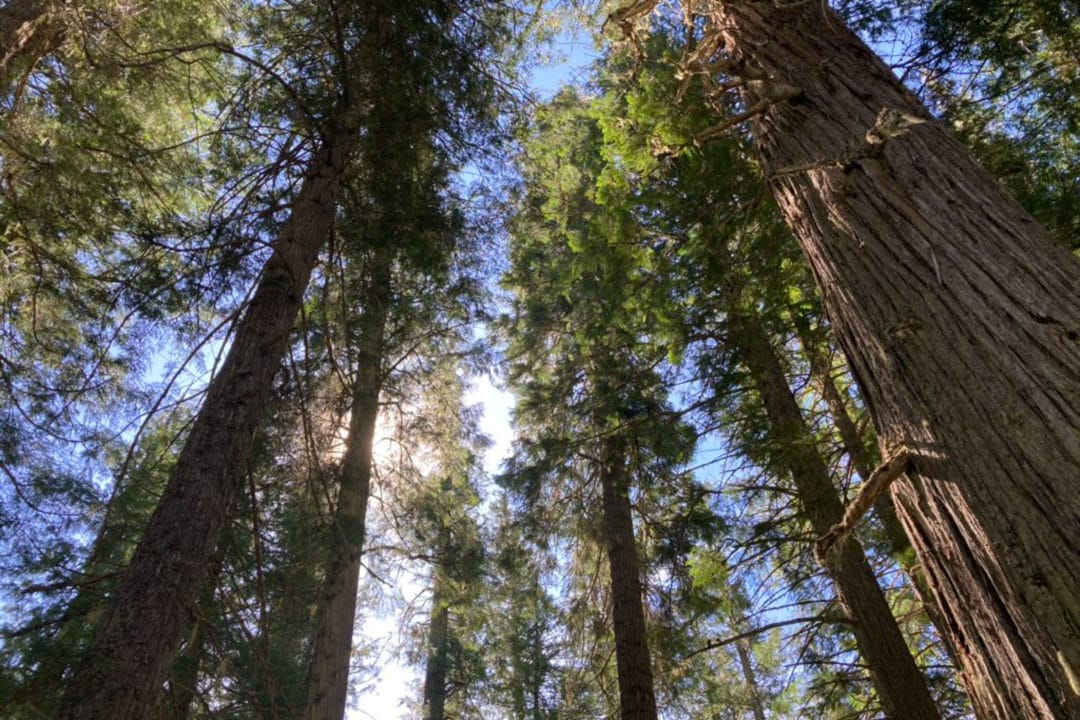
Northern Idaho. | Photo: Scott V. Edwards
Faced with the possibility of having nowhere to sleep after riding 50 or more miles a day, Edwards had to quickly adapt. He started searching for homestays through an organization called Warm Showers, where he made connections with people across the country willing to let him stay on a couch or camp in their backyard, in order to maintain social distancing.
“I probably maintained greater social distance on the road than I would have had I stayed here in Concord [all summer],” Edwards says. “In some ways it was the best time to travel because the roads were relatively less crowded.”
Biking while Black
Edwards’ route took him through dozens of small towns, over nearly 4,000 miles of country roads and state highways. Edwards says he intentionally chose rural routes and avoided major cities. He did not plan to get involved in protests along the way, but instead hoped to spark conversations with people whose only interactions with the Black Lives Matter movement might come through their computers or television screens.
“[Before the trip], it certainly was not a goal to have a bunch of conversations with folks about Black Lives Matter or any other issue,” Edwards says. “But I am thankful that I was able to connect with a few people over this issue, but also just over what makes them tick. You learn a lot from people who have a very different experience than you.”
Edwards says people often misjudged him based on his appearance. But, because he’s a Black man working in a majority-white field, he says this is not a new experience.
-
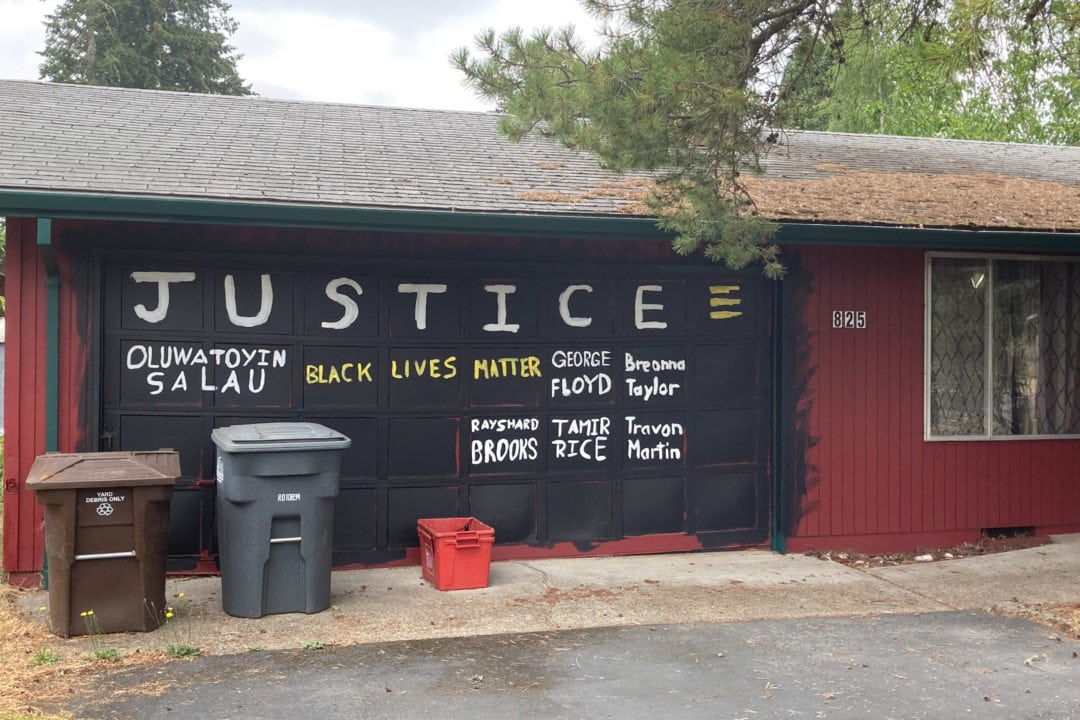
Portland, Oregon. | Photo: Scott V. Edwards -
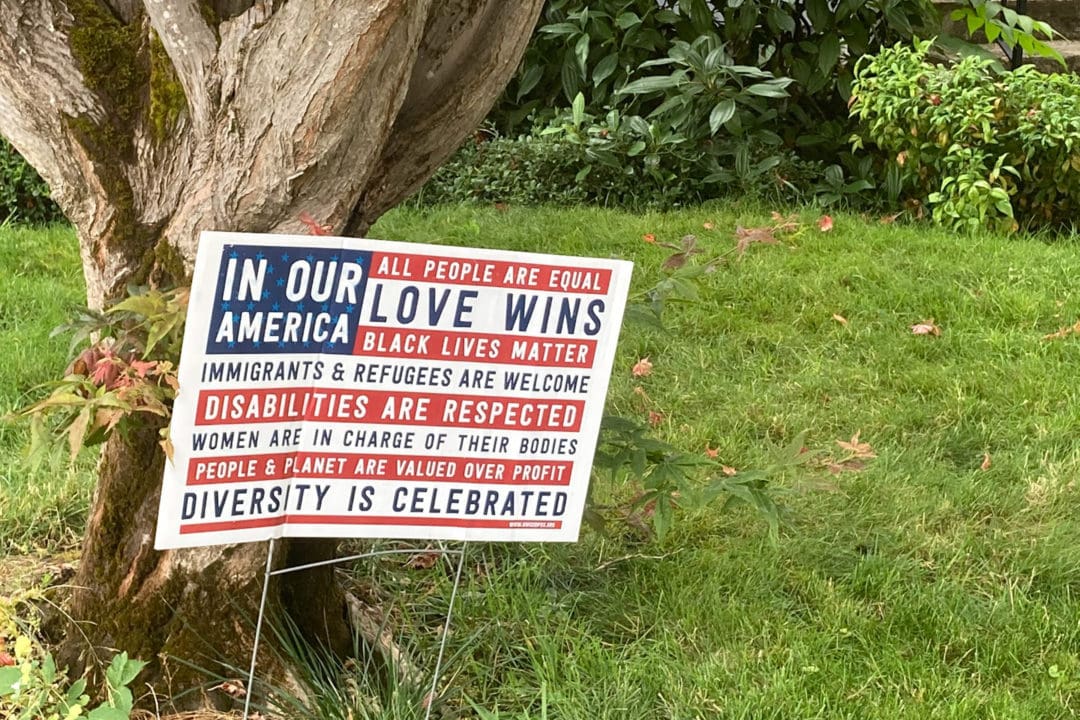
A sign in Portland, Oregon. | Photo: Scott V. Edwards -
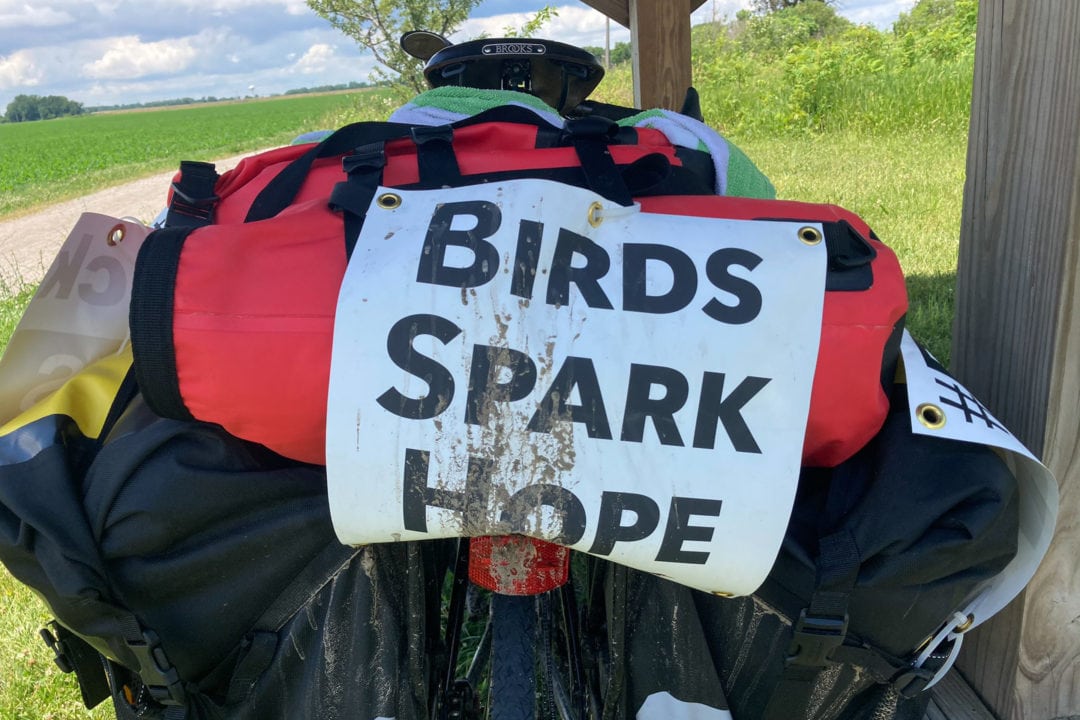
Edwards’ “birds spark hope” sign. | Photo: Scott V. Edwards
“People often step back, almost as if to say, ‘I didn’t expect someone like you to teach at Harvard,’” he says. “But that tends to happen all the time, not just on the trip. That could easily happen just as often in Boston as it could in some tiny town in Wyoming.”
In an effort to counter interactions like these—and to increase diversity in the sciences—in late June, Edwards created a GoFundMe page. During the remainder of his trip, he raised $57,000 to support Black and African American, Latinx, Native American, Pacific Islander, and economically disadvantaged students studying evolutionary biology and biodiversity sciences.
Edwards didn’t always feel secure as a Black cyclist on the road bearing a Black Lives Matter sign. At some points throughout the trip, he swapped out his BLM sign for one that read “Birds Spark Hope.” He experienced microaggressions at campsites. And he even had difficulty finding someone who had the cultural and relational context to cut his Black hair in the small towns he rode through.
“There were so many towns I biked through where I was the only Black person,” Edwards says. “And people would always tell me, ‘People are nice [here], no one will hurt you.’ But it’s not really about that. It is unnerving at times, being the only one in a room, much less a town. You sort of get dulled to it, especially being in academia. So many of us are the only or the first in whatever we’re doing, but it still doesn’t take the edge off of it when you’re traveling.”
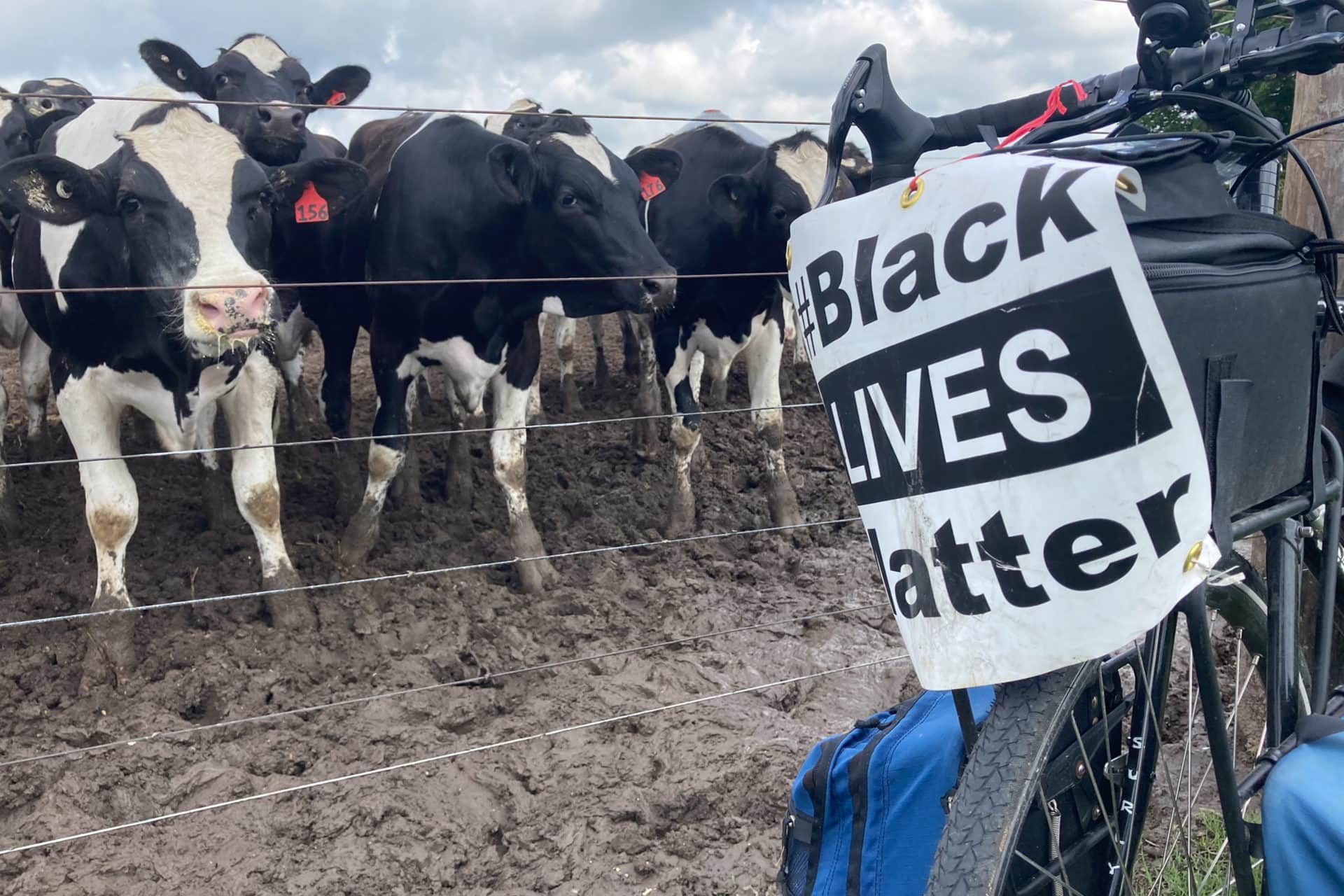
Good days
At several points during the trip, Edwards biked dozens of miles off-route or realized his GPS was taking him toward 10,000-foot overpasses, and he had to pull over to the side of the road to quickly map out a new route. But he also intentionally took longer routes on some days, or ditched his original plans to follow the advice of locals in order to have a more enjoyable journey.
“The best times were days when the wind was blowing in the right direction, the shoulder was wide on the road, the cars were few, and it wasn’t raining,” Edwards says. “With that combination of factors, it’s gonna be a good day.”
Some of Edwards’ favorite parts of the trip were influenced by his passion for birds. He regularly stopped on the side of the road to observe biomes he had never seen before. He also found that people loved to start conversations by talking about the natural world around them. That shared passion for biodiversity gave Edwards an entry point to have deeper conversations, or to tap into local knowledge to discover sites and routes he might otherwise have missed.
-
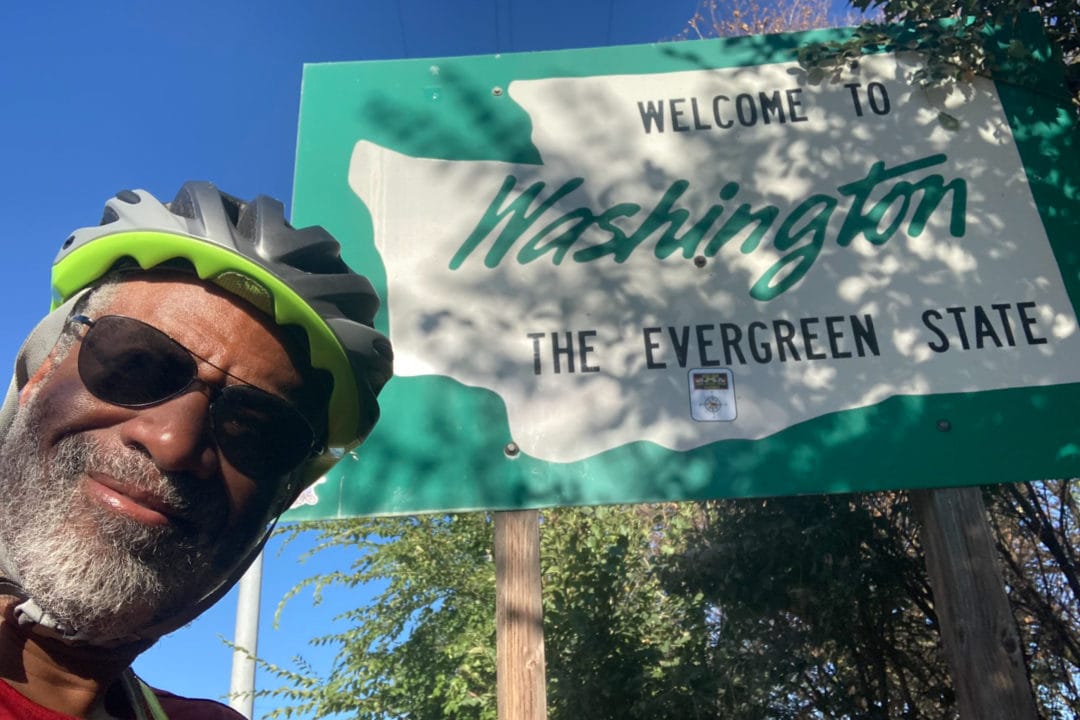
Edwards in Washington. | Photo: Scott V. Edwards -
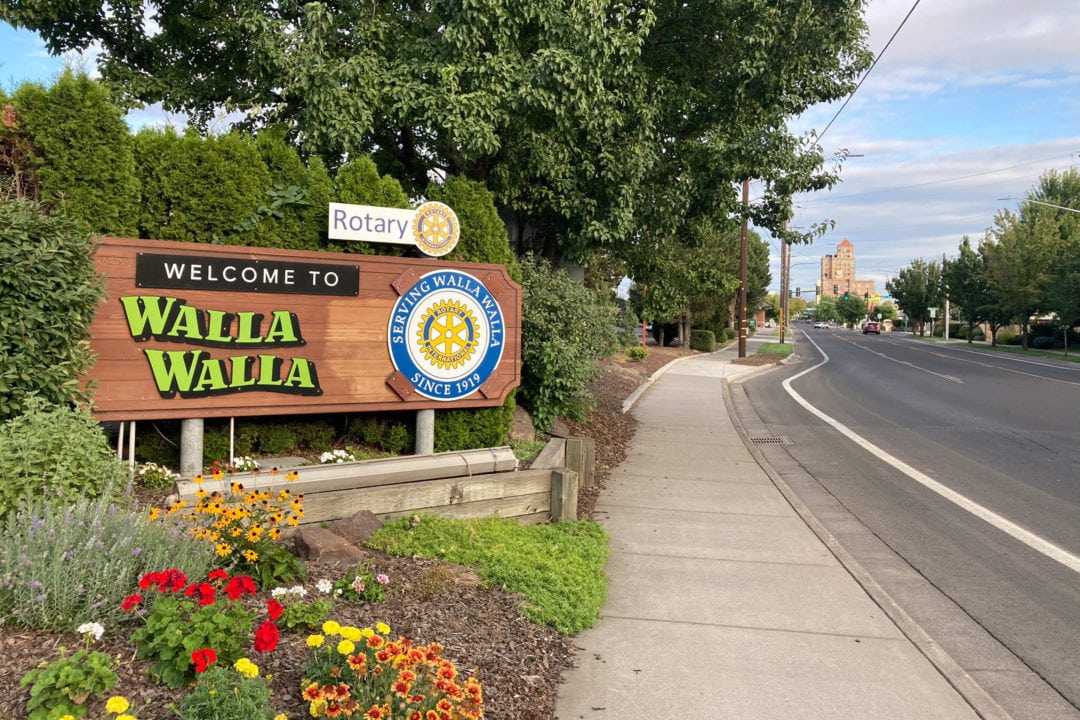
Welcome to Walla Walla, Washington. | Photo: Scott V. Edwards -
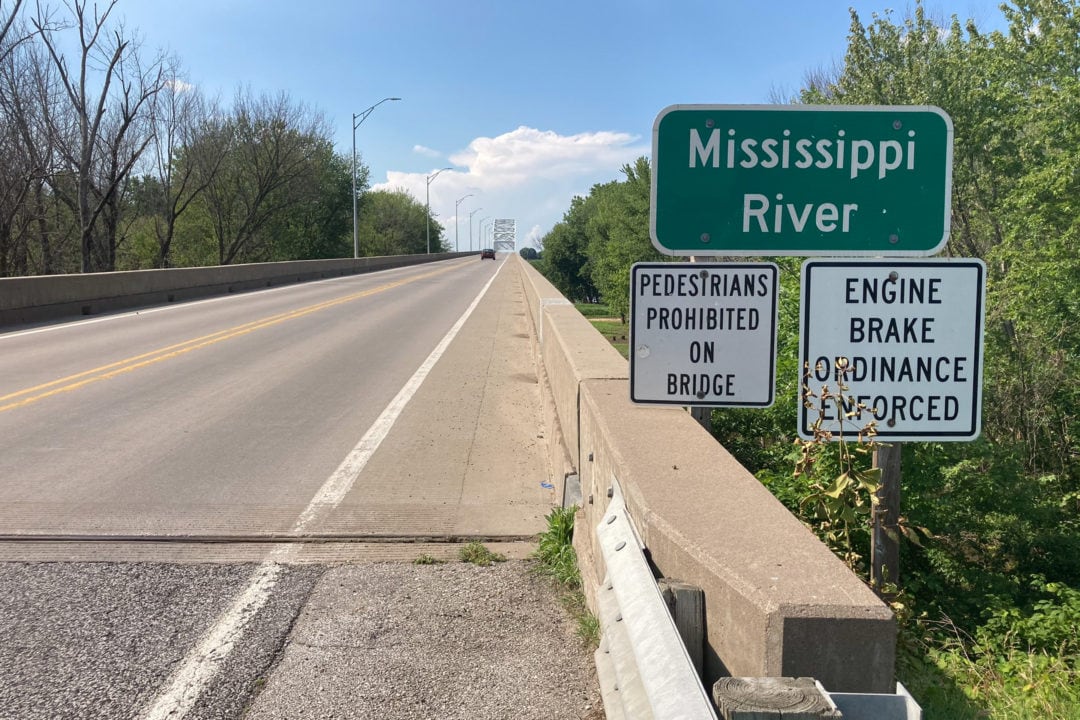
Crossing the Mississippi River. | Photo: Scott V. Edwards -
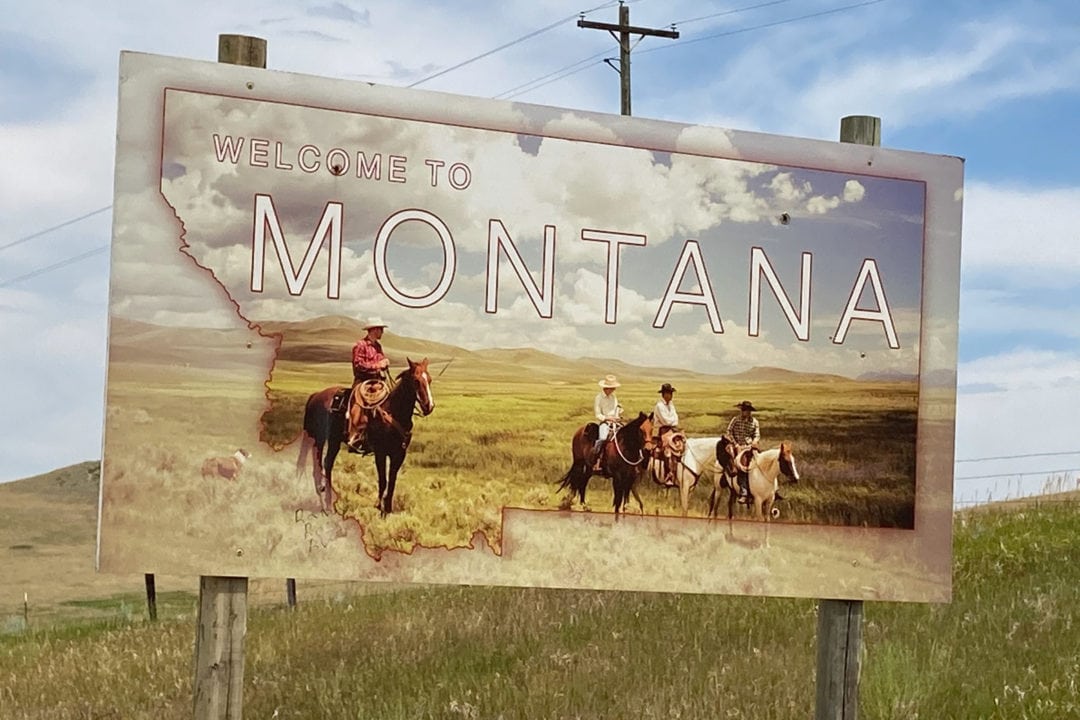
Welcome to Montana. | Photo: Scott V. Edwards -
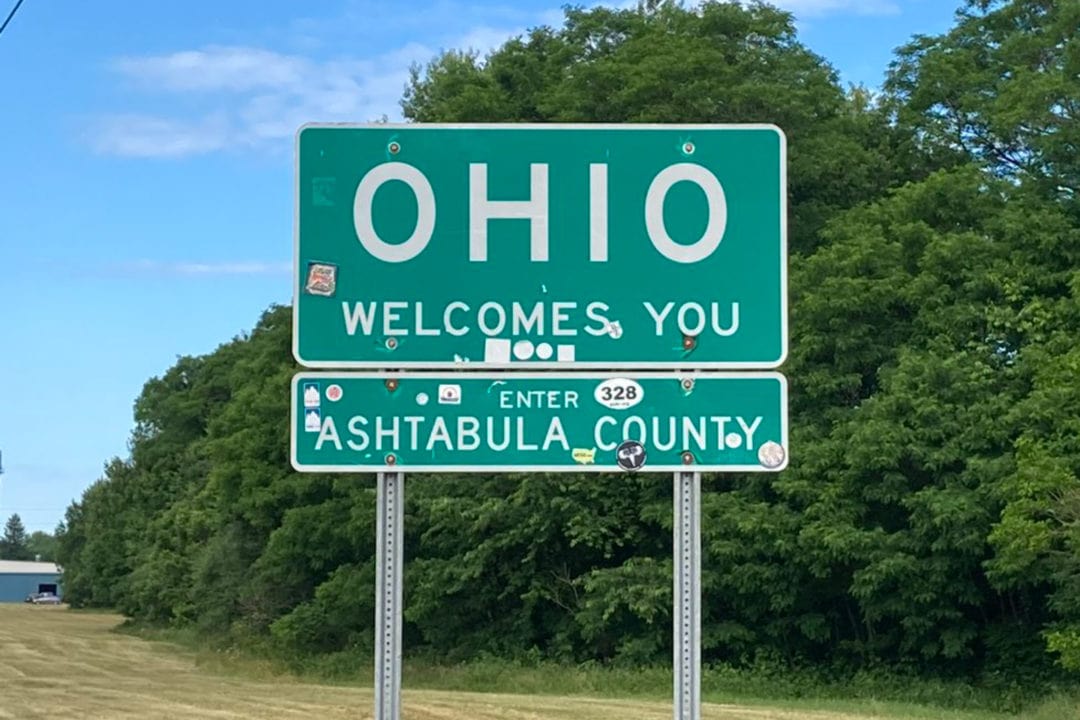
Ohio welcomes you. | Photo: Scott V. Edwards
Edwards had very few expectations when planning this trip. He never imagined he’d spearhead conversations around Black Lives Matter, fundraise for scholarships, or be able to have such personal interactions with people across the country in the midst of a global pandemic. In taking this trip, he says he learned that you have to be constantly adaptable and open to whatever direction the road might take you.
“You’re never really ready for a trip like this,” Edwards says. “You can’t plan, plan, plan and then suddenly you’re ready. The truth is, it’s not like you’re going to the moon. Just take each day at a time and focus on enjoying yourself.”
He adds, “I miss hitting the open road every morning. It’s a real privilege to be able to do that.”
